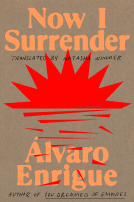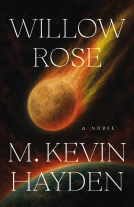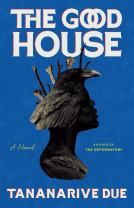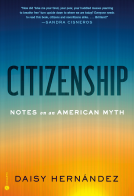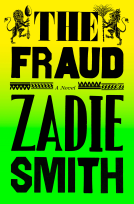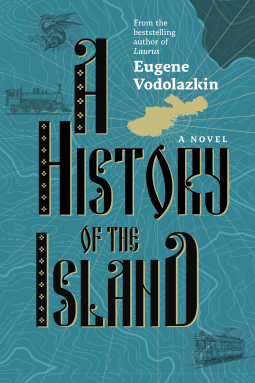
A History of the Island
by Eugene Vodolazkin; Eugene Vodolazkin
This title was previously available on NetGalley and is now archived.
Send NetGalley books directly to your Kindle or Kindle app
1
To read on a Kindle or Kindle app, please add kindle@netgalley.com as an approved email address to receive files in your Amazon account. Click here for step-by-step instructions.
2
Also find your Kindle email address within your Amazon account, and enter it here.
Pub Date May 02 2023 | Archive Date May 23 2023
Plough Publishing | Plough Publishing House
Talking about this book? Use #AHistoryoftheIsland #NetGalley. More hashtag tips!
Description
Monks devious and devout – and an age-defying royal pair – chronicle the history of their fictional island in this witty critique of Western civilization and history itself.
Eugene Vodolazkin, internationally acclaimed novelist and scholar of medieval literature, returns with a satirical parable about European and Russian history, the myth of progress, and the futility of war.
This ingenious novel, described by critics as a coda to his bestselling Laurus, is presented as a chronicle of an island from medieval to modern times. The island is not on the map, but it is real beyond doubt. It cannot be found in history books, yet the events are painfully recognizable. The monastic chroniclers dutifully narrate events they witness: quests for power, betrayals, civil wars, pandemics, droughts, invasions, innovations, and revolutions. The entries mostly seem objective, but at least one monk simultaneously drafts and hides a “true” history, to be discovered centuries later. And why has someone snipped out a key prophesy about the island’s fate?
These chronicles receive commentary today from an elderly couple who are the island’s former rulers. Prince Parfeny and Princess Ksenia are truly extraordinary: they are now 347 years old. Eyewitnesses to much of their island’s turbulent history, they offer sharp-eyed observations on the changing flow of time and their people’s persistent delusions. Why is the royal couple still alive? Is there a chance that an old prophecy comes to pass and two righteous persons save the island from catastrophe?
In the tradition of Umberto Eco’s The Name of the Rose, Julian Barnes’s A History of the World in 10 1/2 Chapters, and Kazuo Ishiguro’s The Buried Giant, Vodolazkin is at his best recasting history, in all its hubris and horror, by finding the humor in its absurdity. For readers with an appetite for more than a dry, rational, scientific view of what motivates, divides, and unites people, A History of the Island conjures a world still suffused with mystical powers.
Advance Praise
"Compelling reading: brilliantly vivid and inventive, it combines magical-realist mischief with a compassionate, radically Christian perspective on the self-destroying idiocies of human history and political posturing. A masterpiece by one of Europe’s finest contemporary novelists." —Rowan Williams, former Archbishop of Canterbury
Eugene Vodolazkin has emerged in the eyes of many as the most important living Russian writer. A literary scholar as well as a novelist—or, as he puts it, an ichthyologist as well as a fish—Vodolazkin draws heavily on the Russian classics in novels of ideas addressing what Russians call “the accursed questions,” including the meaning of life and, especially, the significance of death. … For Vodolazkin, who was born in Kyiv in 1964, the key to all such mysteries is time. … We must change our understanding of time, Vodolazkin believes, and that is what his novels try to accomplish. —Gary Saul Morson, New York Review of Books
Marketing Plan
Featured at ABA's Winter Institute 2023, with placement in the galley room and a signing event with the translator
National publicity campaign with coverage expected LitHub, Electric Lit, the New York Review of Books, Times Literary Supplement, and more
Major ARC mailing to sales reps, booksellers, and librarians
Bookseller and librarian promotions on NetGalley and Edelweiss
Consumer giveaways on Goodreads and LibraryThing
Feature in Plough Quarterly magazine, circulation 15,000
Promotion to Plough’s email lists, combined reach 100,000.
Available Editions
| EDITION | Other Format |
| ISBN | 9781636080680 |
| PRICE | $26.95 (USD) |
| PAGES | 320 |
Available on NetGalley
Average rating from 31 members
Featured Reviews
 Luke E, Reviewer
Luke E, Reviewer
Eugene Vodolazkin’s A History of the Island reads as an ongoing historical chronicle regarding an unnamed, nondescript Island, interspersed with an ongoing commentary written by a royal couple who has lived for over three and half centuries. Like Vodolazkin’s previous works, the experience of time remains one of the novel’s overriding themes, where the format as much as the plot, propels the reader through various periods or epochs in time, from the Middle Ages up until the (relative) present. The book opens with a quote from a “prophecy” that will become a major part of the plot later in the narrative, followed by a “prologue” or sorts, written by a fictional publisher – that is, the one, within the world of the story, who is in the process of publishing the chronicle. The ensuing chapters are all written by historians or chroniclers from the Island who write the Island’s history from an explicitly Christian (and Orthodox) perspective. Each chapter begins and ends with the rise and fall of a new ruler. Likewise, as time flows from one generation to another, the “narrator” of the text frequently changes hands, as each “chronicler” dies and another takes his place. In stark contrast with most of the Island’s rulers, the chroniclers are self-described pious and humble men (often monks), while the rulers are largely corrupt and dominated by the passions and vices of power, money, vainglory, and the like.
Meanwhile, an ongoing commentary and subplot written by Prince Parfeny and Princess Ksenia, former rulers on the Island who are (at present) 347 years old, frequently interrupts the chronicle itself. Like the chroniclers, Parfeny and Ksenia live pious, righteous lives and feature prominently in the prophecy mentioned in the beginning of the book. They are the sole exemplars of good, pious political rulership on the Island, but like the ancient Israelites at the base of Mt. Sinai, the people of the Island often reject them in favor of the myth of “progress.” Meanwhile, Parfeny and Ksenia, writing in the present, are working as consultants with a French film director, who is making a film about the Island and its royal couple.
Collectively, the various “times,” “narrators,” plots and subplots challenge modern notions of time, progress, history, politics, faith, and spirituality. To a certain extent, the novel functions as “a metaphor for European history,” as Vodolazkin has said elsewhere (in an article for First Things). As the fictional publisher says in the opening prologue, “The whole world has looked at what has taken place on the Island and reflected on the essence of history. Not only about our history but about history in general.” The format is innovative and seemingly “postmodern” for a novel, but as a medieval historian, Vodolazkin is actually mimicking ancient Byzantine and early Russian chronicles or annals, such as the sixth century The Chronographia of John Malalas or the early twelfth-century Tale of Bygone Years, which detail the history of Roman and Byzantine emperors or Russian rulers through the prism of biblical history. Vodolazkin effectively utilizes ancient historical genre in order to undermine Hegelian, Marxist, and capitalist conceptions of history and politics as “progressive.”
Reflecting on the observations of one of the chroniclers, Parfeny notes that,
It is interesting how Brother Ilary writes about progress. The
word had just come into fashion at the time and the chronicler avoids it when possible. He obviously does not like the
word: it appeared on the Island with the first bombs.
I recall our conversation with Ilary. He said then that
history’s primary event was the incarnation of Christ. That
had already occurred and so history generally had no more
serious tasks.
“It is now the universal history of moving away from
Christ,” said Ilary.
“Moving away in all senses?” I asked, to clarify.
He nodded:
“Perhaps it is even like this: it is the history of universally
moving away from Christ. Hope is now placed on personal
history.”
When Ilary said at another time that history had set off
on a false course, Ksenia asked why he wrote.
“I am writing the history of an error,” responded Brother
Ilary.
Ksenia and I were recalling him today. He departed
from our life forever. Small, redheaded, with a beard that did
not grow well. That is what the enemies of progress looked
like. (115-116)
One of the most striking features of the book is the way in which Vodolazkin contrasts fictional characters, places, and events with real names and places. For example, there are numerous references to names and places that correspond to “reality” outside the novel’s fictional landscape – France, Russia, Joseph Stalin, the Irish, Charles Darwin, Bishop Kirill, etc., whereas almost everything (except for the personal names of the rulers, bishops, etc.) pertaining to or relating to the “Island” remains unnamed and nondescript – the Island, the Mainland, the City, the Main Square, the Mountain, Mr. Brand (the chairman of Mainland Oil Company), etc. In this sense, just as the novel disrupts modern notions of time (as that which flows “progressively” from past to present to future), so too does it question the metaphysics of reality. What counts as “real,” as opposed to fiction? Likewise, as the plot transitions from the Middle Ages into the modern and contemporary age, the chroniclers continue to interpret history through a biblical and supernatural lens, while various “modern” voices cast doubt on the notion of divine providence as a mediating or driving force within human history. At one point, the fictional publisher Phillip expresses “his amazement at the naivete of the Middle Ages” (81). In the Middle Ages, Phillip observes, comets were thought to be dragons, whereas in the modern era, as Parfeny notes, “a dragon is taken for a comet” (82). In the same exchange, Parfeny argues that there is one basic question that divides the medieval world from the modern: “the circumstances of the world’s creation.” Science, he says, will never provide an adequate answer to that question because it “studies only the physical world but in order to explain that world as a whole, one must leave its confines. And there’s nowhere for science to go” (81).
At one point, Parfeny comments on a legend recounted in the chronicle about the creation of cats. According to the chronicler (who is repeating a Hebrew folk story), the devil once transformed into a mouse and began gnawing at the bottom of Noah’s Ark. “Noah then prayed to God and a lion sneezed, releasing from his nostrils a tomcat and a she-cat, and they strangled the mouse. That is how cats, who are still a rarity in our land, came about” (10). Parfeny then notes that “the modern reader will regard [this story] as steeped in legend,” contrasing ancient legend and myth with modern notions of Darwinian evolution. For Parfeny, storytelling, regardless of scientific observation, is “wonderful,” and “all that is wonderful is true in some way” (10). Parfeny then goes on to claim that Darwin “was not contradicting a biblical text,” but he was insensitive to poetry and was unable “to hear metaphor” (10-11) (cf. Paul Riceour’s notion of the “second naiveté”). Because Parfeny and Ksenia’s lives span three and half centuries, they are able to accept the validity of modern science without denying the larger, metaphysical insights of the medieval world and the biblical narrative.
Part of Volodazkin’s genius is his ability to encase an explicitly biblical and medieval worldview within a decidedly postmodern plot structure (or anti-structure), both of which are marked by fragmentation, allegory, metaphor, pastiche, deferral, and difference. While postmodernism – in both literature and philosophy – tends to eschew transcendence (as in Deleuze) or metaphysics (as in Derrida), Volodazkin has constructed a complex narrative that undermines the pretenses of modern literature and philosophy without supplanting transcendence, while at the same time subverting modern political ideologies (communism, capitalism, etc.) and abuses of power writ large. While the medieval naiveté strikes modern characters like Phillip as outlandish, Volodazkin cleverly characterizes the modern and secular rulers (who variously represent the excesses of communism and globalization) as becoming increasingly more absurd as the Island embraces the waves of secularism, communism, capitalism, and globalization. The real naiveté, for Volodazkin, is to believe that history or politics is progressing toward a brighter future. According to one of the chroniclers (Brother Ilary), history pivots on the Incarnation of Christ, and it is foolish to believe that history could possibly “progress” beyond the moment when divinity itself dwelled in human flesh. Again, Parfeny’s commentary is illuminating:
It is interesting how Brother Ilary writes about progress. The
word had just come into fashion at the time and the chronicler avoids it when possible. He obviously does not like the
word: it appeared on the Island with the first bombs.
I recall our conversation with Ilary. He said then that
history’s primary event was the incarnation of Christ. That
had already occurred and so history generally had no more
serious tasks.
“It is now the universal history of moving away from
Christ,” said Ilary.
“Moving away in all senses?” I asked, to clarify.
He nodded:
“Perhaps it is even like this: it is the history of universally
moving away from Christ. Hope is now placed on personal
history.”
When Ilary said at another time that history had set off
on a false course, Ksenia asked why he wrote.
“I am writing the history of an error,” responded Brother
Ilary.
Ksenia and I were recalling him today. He departed
from our life forever. Small, redheaded, with a beard that did
not grow well. That is what the enemies of progress looked
like. (115-116)
Perhaps another way to put it, following the work of Hartmut Rosa, is to say that history is not progressing toward a brighter future; rather, it is accelerating, moving at ever faster and faster speeds (i.e., industrialization, globalization, technological innovations, etc.) toward its own self-destruction. Yet, because of the Incarnation, history is not without hope, a theme which Volodazkin utilizes to great effect as the novel reaches its climactic conclusion (which I will not spoil).
Another important theme is peace. Parfeny and Ksenia are ideal rulers, even though the people ultimately reject them. Throughout the narrative, they broker peace between warring factions and embody a Christ-like kenosis in almost everything they say and do. Despite the Island’s proclivity toward war, the royal couple, in conjunction with the bishops (who function as both priests and prophets), are persistent witnesses to the possibility of peace.
In sum, A History of the Island is as brilliant as it is enjoyable. It challenges much of modern and contemporary culture, especially its understanding of history and politics. It sits comfortably within the genres of postmodernism and magical realism, utilizing medieval history and theology as a creative literary device that pushes beyond the limitations of (post)modern literature and invites the reader to enter into a different world than the one we have presently constructed.
(I requested and received an advanced copy from NetGallery in exchange for an honest review.)
I had the honor to read the upcoming English translation of A History of the Island. I'd never heard of Eugene Vodolazkin prior to this. It's brilliant and charming and odd and unexpected. I'm always grasping for something new. In the abundance of books I read, stories take a circular pattern and I find myself bogged down and disappointed. This wasn't like that at all. Vodolazkin's cleverness and originality are on full display. I enjoyed it so much that I picked up his previous works.
As far as the content goes, what is described is exactly what you get. The book is primarily made up of the writings of Monks through the ages telling the History of the Island. There are also sections of commentary on these events plus the current happenings of two royals. The chapters are separated based on whoever is ruling the Island at the time. As a history lover, I can't give enough credit to Vodolazkin for what he has accomplished. While a work of fiction, this feels so alive.
 Pete F, Media/Journalist
Pete F, Media/Journalist
Another Vodolozkan! It's definitely more Laurus (fantastic/medieval) than Brisbane (realistic/modern), though he plays with the perception of time in all the books.
I like the self-awareness of the scribes and the metaness of the notes from Parfeny and Ksenia, though I enjoyed the clarification of their memories in the first half more than the modern journal entries about the filming in France in the second half.
Going in, I wished I had more context than "a critique of the progression of Western culture," but nearing the end that's what we have, so I guess the back cover copy makes sense. Vodolozkan uses the device of Parfeny and Ksenia's long life to span the story and provide perspective, though they clarify that they're not medieval people dropped into the modern world since they lived through the ages.
It's a big, sprawling narrative - but like his previous book Brisbane, it keeps the action rooted in particular characters, While it deals with similarly serious, sad ideas, there's a dry humor that makes the medicine easier to swallow. I haven't read enough Russian literary masters to say how it compares to their work - the huge scale, the tragicomedy, the multifaceted religious vision - but it's an entertaining read nevertheless.
 Reviewer 537835
Reviewer 537835
This is a truly unique book -- the pretend history of a fictional island (maybe near the Black Sea?) written in the style of an old saga or medieval manuscript. People live for hundreds of years. The history goes back to the time of Noah (with several twists), and thus feels Biblical in many ways. We see history being written and rewritten, with segments being deleted and added by various scribes and editors, depending on the needs/whims of current rulers.
I was intrigued to read a book by a Russian author born in Kyiv, and was hoping to understand modern Russian literature a bit better by reading it. However, I'm giving up at about 40% because the characters just aren't grabbing me. Perhaps at a different period of my life I could concentrate better on remembering who is who. In other words, despite realizing that this is a very inventive and well-written novel, it just wasn't for me right now..
Thanks to the publisher and NetGalley for an advance review copy.
 Julie S, Reviewer
Julie S, Reviewer
Vodolazkin, Eugene. A History of the Island: novel. Walden, NY : Plough Publishing. Forthcoming May 2023. 320 pp., $26.95 hardcover.
The history of Eugene Vodolazkin’s island is traced from the Middle Ages to modernity. Prince Parfeny and Princess Ksenia live through 357 years of it, through a dozen wars with a dozen different leaders, including a revolution. The parallels to the Russian revolution, Stalin, and the Gulags cannot be avoided. Parfeny and Ksenia see history, time, as a fluctuation of Good and Evil, not as cause-effect events. Vodolazkin’s view of time is very different than the typical western idea, and only an author of his skill could write effectively through centuries without losing the freshness and depth of characters. He is at his best in talking about the art of the time, ultimately comparing it to the realistic style we recognize as Socialist Realism.
The danger in narrating through the centuries manifests in Vodolazkin’s diluting the depth of the story and the characters. It also presents sudden huge leaps in time in time and place: a third of the way through the novel we are abruptly dropped into modern Paris where Parfeny and Ksenia are meeting with a French film director for a biopic with the prince and princess as consultants. This sudden leap into another time and place may be somewhat disorienting, but once we become accustomed to such time shifts, like eyes adjusting to a dark theater, we are comfortable when steamboats suddenly appear off the shores of the island. But it also risks some departures in character: consulting on a biopic of their lives simply does not seem like something these these two deeply sympathetic characters would do. Perhaps Vodolazkin was making a wry comment on too many writers’ eyes on film rights, often to the detriment of the original story.
Other sections are superb: the smooth narration about Vlas, the Lord of the Bees and the conversion of his daughter, Melissa (new ruler of the island), shines. From a religious country to an atheistic revolutionary country back to a religious country, all done so skillfully we travel without realizing the transition. This is vintage Vodolazkin.
Vodolazkin has displayed his unorthodox use of time and - as a medieval scholar - the Middle Ages in his previous novel Laurus, and for all his skillful craftsmanship, this may weaken his novels. Still, he brilliantly transcends frontiers of geography, politics, time, and history, and has produced a novel well worth reading.
 Reviewer 492564
Reviewer 492564
In preparation for this novel, I read the author's previous epic work, Laurus. As some reviewers have already mentioned, this is a continuation of that novel, and the author's storytelling style and incredible imagination carry through every word. That said, while there are moments of astonishing thought and ideas, I'm not sure the book works well, either as a sequel or a stand-alone. With Laurus, the reader gets a lot of crucial information as the book develops--about Russian religious history, Orthodox Christian thought, medieval Russian life, the history of medicine, and more. In A History of the Island, those deep roots are scant, and the book suffers for it. The many narrators and their very different personalities helps propel the story/stories, and if the reader is patient and knowledgable about Russian intellectual history, religion, and other issues, there is a kind of reward to making it to the end--just as the theology says.
 Eva S, Reviewer
Eva S, Reviewer
Written by various monks, this fictional history is the several-century chronicle, minus the entries for the 150-year foreign occupation subsequently burned once foreign forces left, of an island nation. The chronicle is being published for the first time and annotated by the long-time deposed monarchs, Parfeny and Ksenia, who happen to be exceptionally long-lived (347 years as of publication). Contemporaneously, a famous filmmaker is making a movie about their lives. The history is a droll account of the succession of rulers who, particularly subsequent to the revolutionary overthrow of Parfeny and Ksenia, become more and more absurd in their so-called leadership. This political satire is an entertaining and thoughtful critique of political and social change. There are religious undertones, but one can take them however one desires.
I received an ARC from Plough Publishing House in exchange for an honest review.
 Librarian 431790
Librarian 431790
My relationship with the Russian literature is a sort of love-hate. I love this book that mixes genre and tells the story of a fictional island.
The author is an excellent storyteller and there's plenty of stories and details.
Recommended.
Many thanks to the publisher for this arc, all opinions are mine
 Natalie H, Reviewer
Natalie H, Reviewer
A History of the Island
By Eugene Vodolazkin
Vodolazkin is a Russian novelist and medieval scholar. He has received many awards for his previous works, and doubtless will for this book as well. The story is about a non-existent Island – but it is obviously symbolic of his homeland, which has historically separated itself from the European continent of which it is a part.
The story revolves around Prince Parfeny and Princess Ksenia and a prophecy that the welfare of the Island's people is entwined with the survival of this couple. They appear to represent guardian angels of the Island.
The royal couple do, in fact, live to the age of 347 years. During their long lives they witness the rise and fall of many different leaders; wars; treachery; the endless struggle for power. In fact this history seems to parallel the actual history of Russia and its people. As each new dominant power rises up, it seeks to wipe out the memory of things past and focus only on its ideas for the future. But as history has taught us, if we do not learn from the past we are doomed to repeat the same mistakes.
This book is not an easy read. It is the product of a culture very different from ours. It is, however, a fascinating glimpse into the Russian mindset. For that alone it is well worth reading.
this was a very bizarre read but i thoroughly enjoyed it. in the spirit of m. e. saltykov-schedrin's "the history of a town," this was a well-written, thematically impactful satire. at times the prose was difficult to follow, but that may be a result of formatting in the arc and hopefully it was resolved in the final publication. witty and darkly humorous, anyone who enjoys historical satire should give this a try!
 Debra B, Reviewer
Debra B, Reviewer
I am still digesting this book. Mr. Vodolazkin has written a not so thinly disguised history of everywhere. This takes place on an island over hundreds of years and one can see the pattern of the idiocy and greed and stupidity of men (and women) that takes place pretty much everywhere.
This was not a quick read for me because it actually made me think and that isn't usually my goal when I escape into literature. Let those who have eyes see.
Thank you Plough Publishing and NetGalley for the early read.
This was a wonderful departure for me - a translated work from Russian - that was a delight to read. Its structure is a record of events documented by monks of a seemingly small island country. The volumes are grouped by the rulers/leaders of the time and the reader meets some wonderfully imagined characters who have centuries-long life spans akin to Old Testament Biblical figures. The highlights for me was the clever retelling of the events, politics, and the machinations which mimic the history of Russia from the Middle Ages into the modern era. I’m not a scholar and there’s no doubt that I missed a lot; however, I learned a great deal – taking notes and googling additional information as I read along when I noticed familiar dates and references. (Yes, I can be a bit nerdy).
The characters are true to the times in which they lived and the roles they assumed – many are not particularly likable; which (loosely) mimics their real-world counterparts’ presumed personalities, actions, and points of view; allowing the reader to understand their method of ruling, witness the morphing of governments (dictatorships/authoritarianism, communism, etc.), observe the role/influence of religion, and gasp their missteps and misuse of power that spawn corruption, scandal, and unforgettable revolutions and downfalls.
For me, I loved the originality and freshness applied to deliver such an informative look at a part of history in which I was vaguely familiar. I’ll definitely pick up his earlier works and look forward to upcoming releases.
Thanks to Plough Publishing and NetGalley for an opportunity to review.
The way this book mimicked a history book and religious texts was skillfully done-- but this is not a book you cruise through like a thriller or a beach read. You move slowly through it, trying to understand what the author is saying about the foibles of the human race at large.
 Kip K, Reviewer
Kip K, Reviewer
In a History of the Island, Vodolazkin puts his favorite subject front and center, the nature of time itself. Set off the coast of France in an unnamed island nation this fictional metahistory-cum-novel covers centuries of history through political upheaval, changing faith, and the near-immortal couple that lives through (almost) it all. (That reads like a spoiler, but they aren't alive at the beginning, thus, almost).
The form of the novel is a handwritten history (passed down by a series of scribes) being footnoted and commented upon by Prince Parfeny and Princess Ksenia, the elderly former royal couple who have lived through several centuries of the dramatic history. Through his use of single scribes for long periods of history, Vodolazkin shows how history can be sculpted to fit different needs and the way singular viewpoints can change a nation's understanding of itself.
Interspersed with a more modern story of the prince and princess and their quest for a prophecy that will alter the future of the island, the book skillfully comments on progress and faith as the Island barrels forward into the modern world.
I am still processing this one and expect to be for a while. The Island is of course fictitious, but you keep trying to pin it on something familiar. Of course it doesn't fit because this is bigger, and smaller, than any one nation's history. The translator has done wonderfully with maintaining the cadence, tone, and style of premodern chroniclers throughout, which adds to the almost dream-like quality. Yet it perfectly parallels the trends and issues in the broad swath of history it covers.
If you need concrete "realism," then this book is not for you. If you can untether and float among the symbols while examining the real, then you should pick this up and enjoy the ride! It helps if you know your history
 Joy D, Reviewer
Joy D, Reviewer
Fictionalized history of an unnamed island written as if initially composed by a monk of the medieval age and moving forward in time up to somewhere near present day. The two original rulers of the island, Princess Ksenia and Prince Parfeny, live for 347 years. A prophesy ties the island’s welfare to these two leaders. Other rulers come and go, some by election, a few by force, others by birthright. Later, we find Parfeny and Ksenia in Paris where they are consultants to a French producer who is creating a film based on their lives.
The manuscript documenting the island’s history is modified over time by various scribes based on instructions from the leader du jour. This history includes wars, revolutions, and social changes. Religion plays a role, as does immigration and giant companies that want to harvest the island’s natural resources, generally with the assistance of the country’s current leader (who stands to gain riches).
It occasionally feels repetitious (probably intentionally), but the social commentary on world politics, corruption, greed, abuse of power, and ignoring lessons from history is unmistakable. It is filled with irony and subtle humor. The author employs touches of magical realism, which work well here, adding to the feeling of reading a fable or myth. The author is a wonderful storyteller and this is an unusual and creative work. This is the second book by Vodolozkin that I have read. I can also recommend Laurus.
 Libby B, Librarian
Libby B, Librarian
This took me a long time to read, not because I didn't like it but because, like non-fiction book history, it unwound slowly. Even as it finally moved towards the climax, there was still a sense that the book is finished as the island will go on. It took a while for me to actually connect with the two supranaturally long-lived main characters, Parfeny and Ksenia, who for many years ruled the island. Their comments enliven the historical details, and their lives frame the history of the island. Not for everyone, those people who like slow, thoughtful fiction which has may levels will like this book.
 Tammy H, Librarian
Tammy H, Librarian
"A History of the Island" is a brilliantly satirical and thought-provoking novel by Eugene Vodolazkin, a renowned novelist and medieval literature scholar. In this captivating narrative, Vodolazkin weaves a clever tapestry that critiques Western civilization and the entirety of history itself. The story revolves around a fictional island whose chronicles span from medieval times to the modern era, offering a witty commentary on the cycles of power, betrayals, wars, pandemics, and revolutions that mark the course of human history.
Vodolazkin's storytelling prowess is on full display as the monastic chroniclers present the island's history, while a hidden, "true" history is concealed for future generations. This duality adds depth and intrigue to the narrative, leaving readers to question the veracity of historical accounts and the motives behind their manipulation. The inclusion of an elderly royal couple, Prince Parfeny and Princess Ksenia, who have miraculously lived for 347 years, brings an element of mystery and reflection on the passage of time. Their keen insights into their people's illusions and delusions serve as a lens through which the reader contemplates the eternal struggle between progress and stagnation.
"A History of the Island" is not merely a conventional history; it's a multidimensional exploration of human folly, ambition, and the ever-present search for meaning. With its sharp wit, astute observations, and intertwining layers of narrative, Vodolazkin's novel is a must-read for those who seek to delve into the complexities of history and the enigmatic interplay between the past, present, and future.
Thank you #NetGalley for an advance copy #AHistoryoftheIsland
 Reviewer 506222
Reviewer 506222
Thank you to Plough Publishing and NetGalley for the advanced copy of A HISTORY OF THE ISLAND.
Lyric writing. It feels as if I am watching a classic movie from the mid 20th century. I liked the book.
Recommended for Religious Scholars.
 Sharon D, Reviewer
Sharon D, Reviewer
Very interesting book how these two characters move through time and space through the years. P a r f y was the king and the queen was k s t and I a. They take this book when they had primitive ideas with this monk and how it moved through the times. They would tell the story didn't the end of it? They had like little blips and how this person felt about it. And the island had a lot of problems but they embraced technology. Between north and south. Then the oil came in much later and this caused a lot of problems as well. So then they had a revolution to try to figure this out it kind of reminded me of uganda or sudan first of all. I know it's an island but you can take these metaphors implying to different things. I think it was interesting how they could put all this together and it was like if like tha tell how things move through time and space. This writer is amazing because he kept the character's focus even when they were changing with the times.
 Librarian 466388
Librarian 466388
Thank you to Netgalley and the publisher for providing an advance copy in exchange for honest feedback
 Denice L, Reviewer
Denice L, Reviewer
Fictional account of the history of an island you will not find on any map, but will recognize from the events shared. The story is told by the island's inhabitants, some of them more than 300 years old, as the world gets closer to their hidden island. Eugene Vodolazkin does an excellent job of bringing the island community to life and sharing a story that could have been true.
Readers who liked this book also liked:
We Are Bookish
General Fiction (Adult), Romance, Women's Fiction
We Are Bookish
Biographies & Memoirs, Health, Mind & Body, Nonfiction (Adult)
We Are Bookish
Historical Fiction, Literary Fiction, Multicultural Interest
Dennis E. Taylor
General Fiction (Adult), Humor & Satire, Sci Fi & Fantasy
